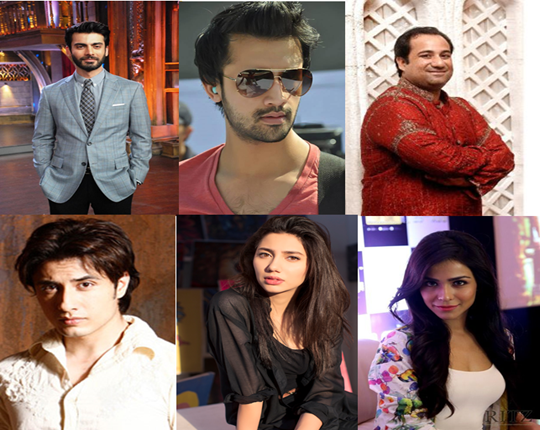The country’s pseudo-liberal brigade is at it again. This time it has come out against the Raj Thackeray led Maharashtra Navnirman Sena, which issued an ultimatum asking Pakistani artists to leave the country.
The only valid argument they can have against such an ultimatum is that it is illegal. But instead of choosing to take that line, they have decided to put their bleeding-heart credentials on display.
Devoid of all logic and any basis, their stance has been nothing short of a betrayal to India. The problem with such people is that they are hardwired to think that art should not come in the way of international conflicts, and that anything coming out of Raj Thackeray’s mouth is bigotry.
Unfortunately, they do not possess the intellectual capacity to understand the strategic implications of their romantic stand.
The simplest argument that one can offer them is that Pakistani artists earn off our country, but pay their taxes in Pakistan. Some of them earn many lakhs of rupees, and are taxed highly back home.
A part of that money, which is Pakistan’s revenue, is allocated to one of Pakistan’s security agencies known as the ISI.
ISI funds, trains and controls most of the terrorism that wreaks havoc within and emanates from Pakistan. Most terror attacks on Indian soil are choreographed by this agency. So essentially, money being earned in India is finding its way to operations that destroy India property and kill innocent Indian citizens.
Some argue that the Pakistani artists are not really at fault here, and that their contribution to Pakistani revenue is relatively negligible. But the question really is this: if we know that the practice of allowing Pakistani artists to work in India contributes even a rupee towards murdering Indians, how can we even conceive of allowing this practice to go on?
Even if one seeks to evaluate this practice based on the larger picture, one would reach the same conclusion. The fact of the matter is that Pakistan, despite whatever façade it puts forth, does not seek peaceful relations with India.
For the first time, we have a government that has called its bluff. It realizes that the only way to deal with Pakistan is for it to implode, and is working tirelessly in that direction. Primarily, there are three simultaneous movements which are taking place.
One, India has given a huge boost to freedom struggles in every region that Pakistan occupies forcefully. New Delhi might soon be home to governments-in-exile of those regions. Two, we never initiate but we give back in kind.
Firing on the frontiers receives a disproportionate retaliation, and terror strikes are avenged with surgical strikes. Three, we are attempting to cripple Pakistan’s economy. From stopping American aid to canvassing for sanctions, from damming rivers to destroy their agriculture sector to considering a revocation of their MFN status, India is making a concerted effort.
In such a scenario, not attempting to plug every hole through which a steady trickle of Indian cash flows into Pakistan would be counterproductive. Moreover, dialogue, people to people relationships and cultural interchange, are not conducive to the atmosphere India is trying to mould.
What many do not understand is that Pakistan is nothing short of the Islamic State or North Korea, only with slightly better public relations. Its psyche is one of deep hatred towards India.
As we debate about whether their artists should be allowed to stay back and earn, several movie theatres in Pakistan have banned the screening of Indian movies. A blanket black-out of all Indian television has been imposed in the country.
This is not surprising, considering India has never been reciprocated for all its foolish niceness towards Pakistan in over sixty years. Instead, it has eaten dirt. Finally, we are unshackling ourselves from Nehruvian thinking and showing spine. We owe it to ourselves to follow through.
Many who believe that the Pakistani artists in question are not terrorists themselves and do not deserve to be thrown out unceremoniously for simply doing their job, need to understand that India cannot be a namby-pamby state.
For all the aforementioned reasons, how life treats them if they are thrown out of India is not really our problem. Pakistanis aren’t as quintessential to us as many would have us believe. We have over a billion people to scout for talent.
Many thought it was unfair to question the Pakistani artists as to why they are the first ones to condemn every terrorist attack in the world, but refused to condemn what happened in Uri.
The logical fallacy in their argument is that the mother ship Pakistan has denied any link to the Uri attacks. It has gone as far as calling it an inside job. What stopped them from condemning the barbarity of the terrorists, irrespective of what their origins were?
Those who thought that such questions put the artists in a spot and should not have been asked, should know that the artists’ ideological allegiances now stand exposed.
When it comes to this controversy, Raj Thackeray knows what he’s talking about. His attempt of enforcing what is in India’s interest and synchronizing many walks of life with a larger movement, must be perceived for what it is.
We certainly don’t need the opinion of men who crush to death sleeping pavement dwellers, or men whose sons are questioned for their links with the perpetrators of 26/11.
